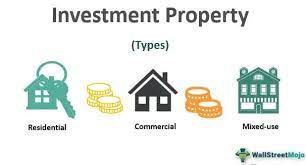
Property investment is a significant and potentially lucrative venture, but it’s not without its complexities and challenges. Whether you’re a seasoned investor or considering your first property purchase, expert advice and tips can be invaluable. In this guide, we’ll provide you with insights and recommendations to help you navigate the world of property and real estate investment trusts in the United Kingdom.
Set Clear Investment Goals
Before you dive into the market, define your investment goals. Are you looking for long-term rental income, short-term capital gains, or a mix of both? Clear goals will guide your investment strategy.
Understand the Market
Stay informed about the property market in the UK. Research property hotspots, market trends, and local regulations. Factors like location, demand, and future developments can significantly impact your investment’s success.
Financial Planning
Assess your financial situation and set a budget. Consider how much you can afford to really invest in property now, including the property’s purchase price, maintenance costs, and potential rental income.
Property Types
Decide on the type of a property development you want to invest in. Options include residential, commercial, or mixed-use properties. Each type has its unique dynamics, benefits, and challenges.
Location Matters
Location is a critical factor in property investment. Seek properties in areas with strong growth potential, good transport links, and amenities. A desirable location often translates to better rental income and capital appreciation.
Due Diligence
Perform thorough due diligence on the property you intend to buy. Inspect the condition of the property, research its history, and consider a professional survey. Understand any legal or zoning restrictions.
Financing Options
Explore financing options, including mortgages, buy-to-let loans, and equity release schemes. Shop around for the best interest rates and terms that suit your investment strategy.
Risk Management
Diversify your property portfolio to spread risk. Avoid putting all your resources into a single property. A mix of property types and locations can help protect your investment.
Property Management
Consider whether you’ll manage the property yourself or use a full property management company or service. The latter can save time and provide professional expertise in tenant relations and maintenance.
Legal and Tax Considerations
Understand the legal and tax implications of property investment. Be aware of property taxes, stamp duty, and income tax on rental income. Consult with a tax professional to optimize your tax strategy.
Rental Strategy
If you plan to rent out your property, establish a clear rental strategy. Determine rent pricing, tenant screening, and maintenance schedules. Consistency and professionalism can lead to satisfied tenants and steady rental income.
Exit Strategy
Have an exit strategy in place. Know when and how you’ll sell or divest your property if needed. An exit strategy can help you make decisions with long-term goals in mind.
Professional Guidance
Consider seeking advice from experts, including property consultants, real estate agents, and financial advisors. Their experience can provide valuable insights and ensure you make informed decisions.
Understanding the Basics of Rental Income
Defining Rental Income
Rental income refers to the revenue earned by property owners through leasing or renting out their properties. This section provides an overview of the different forms of rental income and how it contributes to overall financial stability.
Types of Rental Properties
Exploring the various types of rental properties, from residential apartments to commercial spaces, and understanding how property type influences monthly rental income potential.
Setting the Right Rental Price
Market Research and Analysis
The importance of conducting thorough market research to determine the optimal rental price for your property, considering factors such as location, amenities, and local market trends.
Balancing Profitability and Tenant Attraction
Striking a balance between maximizing rental income and ensuring your property remains attractive to potential tenants, fostering long-term occupancy and positive tenant-landlord relationships.
Property Maintenance and Upgrades

Regular Maintenance for Value Preservation
Highlighting the significance of regular property maintenance to preserve its value and attract high-quality tenants willing to pay premium rents.
Strategic Upgrades for Increased Rental Value
Identifying strategic upgrades and renovations that can significantly increase the rental value of your property, providing a higher return on investment in the long run.
Leveraging Technology for Marketing
Online Listing Platforms
Utilizing online listing platforms and digital marketing strategies to effectively market your property, attract a larger pool of potential tenants, and reduce vacancy periods.
Virtual Tours and Visual Content
The impact of virtual tours and high-quality visual content in showcasing your property, enhancing its appeal, and potentially justifying higher rental prices.
Establishing Tenant Relationships
Effective Communication
Building positive and open lines of communication with tenants, addressing concerns promptly, and fostering a sense of community to encourage long-term tenancies.
Tenant Retention Strategies
Implementing tenant retention strategies, such as lease renewals and loyalty programs, to reduce turnover and vacancy periods, ensuring a steady stream of rental income.
Legal and Financial Considerations
Understanding Rental Laws and Regulations
Navigating the legal landscape of rental property ownership, staying informed about relevant laws and regulations to avoid legal complications and disputes.
Financial Planning and Tax Implications
Engaging in effective financial planning and understanding the tax implications of rental income, ensuring compliance with tax regulations and maximizing financial returns.
Property Market
the UK property market offers a myriad of opportunities and challenges. Staying informed about current trends, understanding regional dynamics, and adapting to emerging technologies are crucial for navigating this ever-evolving landscape.
What is an Investment Property?
An overview of what constitutes an investment property, distinguishing it from primary residences, and understanding the key characteristics investing in property that make it a valuable investment asset.
Types of Investment Properties

Exploring the various types of investment properties, including residential, commercial, and industrial properties. Each type commercial property comes with unique considerations and potential returns.
Financial Considerations for Investment Properties
Budgeting and Financing
Guidance on budgeting for an investment property, exploring financing options for property investors such as mortgages, and understanding the financial commitments associated with property investment.
Return on Investment (ROI)
Calculating and assessing the return on investment, considering factors like rental income, property appreciation, and potential tax benefits.
Choosing the Right Location

Importance of Location in Property Investment
The crucial role that location plays in the success of an investment property. Examining factors such as proximity to amenities, economic growth, and local market trends.
Emerging Areas and Market Trends
Identifying emerging areas and staying informed about market trends to capitalize on potential growth and maximize returns on investment.
Buy to Let Property
buy to let mortgage–to-let property investment presents a compelling opportunity for investors seeking steady rental income and long-term wealth creation. By understanding the financial considerations, choosing the right location, implementing effective rental strategies, and navigating legal and regulatory considerations, investors can unlock the full potential of their buy-to-let investments.
What is Buy-to-Let?
An overview of buy-to-let investments, defining the concept and highlighting how it differs from other forms of property investment, such as in residential properties or commercial real estate.
The Appeal of Buy-to-Let
Exploring the reasons why buy-to-let investments are attractive to investors, including potential rental income, property appreciation, and the diversification of investment portfolios.
What is Capital Gains Tax?
Capital Gains Tax (CGT) is a significant consideration for individuals in the UK involved in the buying and selling of assets, including property. Understanding and effectively managing Capital Gains Tax is essential for individuals engaging in asset transactions. By being aware of exemptions, utilizing allowances, and considering strategic timings, individuals can navigate the CGT landscape more efficiently.
Capital Gains Tax on Property
Main Residence Relief
Understanding the concept of Main Residence Relief, which provides exemptions for CGT on the sale of a main residence.
Letting Relief
Exploring Letting Relief, a potential relief for CGT when selling a property that has been rented out.
Property Value
property value is a multifaceted concept influenced by various factors. Whether you’re buying or selling, being aware of these elements and strategically leveraging them can contribute to a successful and rewarding, real estate investment transaction.
The Significance of Location
Highlighting the critical role location plays in determining property value. Proximity to amenities, transport links, schools, and overall neighborhood desirability are key factors in property prices.
Urban Development and Infrastructure
Exploring how ongoing urban development capital growth and improvements in infrastructure can positively impact property values. Being aware of planned developments in the area is essential for both buyers and sellers.
Property Size and Layout
Square Footage and Usable Space
Examining the correlation between property size and value. Larger homes generally command higher prices, but the efficient use of space and a well-thought-out layout are equally important to house prices.
Bedrooms, Bathrooms, and Functional Spaces
Highlighting the significance of bedrooms, bathrooms, and functional spaces in influencing property value. The number and layout of these spaces can greatly impact a property’s appeal.
Condition and Upgrades
Well-Maintained Properties
The importance of property maintenance in preserving and enhancing value. Well-maintained properties are likely to attract buyers willing to pay a premium.
Strategic Upgrades and Renovations
Identifying strategic upgrades and renovations that can significantly increase property value. Modern kitchens, updated bathrooms, and energy-efficient features are often attractive to buyers.
Comparable Sales in the Area
Conducting Comparative Market Analysis (CMA)
Understanding the concept of CMA and its role in determining residential property’ value. Analyzing recent comparable sales in the area provides valuable insights.
Market Trends and Demand
Keeping abreast of market trends and demand in the local area. A high demand for properties in a specific location can drive up property values.
Economic Factors
Interest Rates and Mortgage Accessibility
Exploring how economic factors, such as mortgage interest payments, rates and mortgage accessibility, can impact property values. Low-interest rates often stimulate demand and contribute to higher property values.
Employment Opportunities and Economic Growth
The correlation between local employment opportunities, economic growth, and property values. Areas experiencing economic prosperity often see a rise in property values.
Environmental Considerations
Sustainability and Energy Efficiency
The increasing importance of sustainability and energy efficiency in influencing property values. Energy-efficient features can enhance a property’s appeal and value.
Environmental Regulations and Restrictions
Being aware of environmental regulations and restrictions in the area. Properties complying with green standards may have higher values due to their positive environmental impact.
Timing the Market
Seasonal Trends
Understanding seasonal trends in the property market. Timing the sale or purchase of a property during peak seasons can impact the final transaction value.
Economic Cycles and Market Conditions
Navigating economic cycles and market conditions. Buyers may find advantageous opportunities during economic downturns, while sellers may benefit from a seller’s market.
What is the Stock Market?
An introduction to the concept of the stock market, where shares of publicly listed companies are bought and sold. Understanding the primary functions and participants in the market.
Importance of Stock Exchanges
Exploring the significance of stock exchanges, such as the London Stock Exchange (LSE), in facilitating transparent and regulated trading of stocks and securities.
Investing in Stocks: Getting Started
Buying and Selling Stocks
A step-by-step guide on how to buy and sell stocks on the UK stock market. Exploring different order types and the mechanics of executing trades.
Choosing Stocks to Invest In
Guidance on selecting stocks to invest in, considering factors such as company fundamentals, industry trends, and financial performance.
Types of Stocks and Market Sectors
Common Stock vs. Preferred Stock
Distinguishing between common stock and preferred stock, understanding the rights and risks associated with each type.
Market Sectors and Industries
Exploring the various market sectors and industries represented on the UK stock market. Investors can diversify their portfolios by investing in different sectors.
Risk Management and Investment Strategies
Risk and Return Dynamics
Understanding the relationship between risk and return in stock market investments. Differentiating between conservative and aggressive investment strategies.
Long-Term vs. Short-Term Investing
Comparing the long term investment well-term and short-term investment approaches. Assessing the advantages and considerations for each strategy.
Mastering Property Investment Tips
successful property investment in the UK requires a combination of strategic planning, continuous learning, and adaptability. By defining your goals, conducting thorough research, and leveraging professional expertise, you can navigate the property market with confidence and achieve your investment objectives.
Property investment in the UK can be a rewarding endeavor, but it’s essential to approach it with careful planning and informed decision-making. By setting clear goals, understanding the market, managing finances wisely, and seeking expert guidance when needed, you can navigate the world of property investment with confidence. Remember that property investment is a long-term commitment, and success often requires patience, knowledge, and adaptability.
FAQs
- Is property investment in the UK suitable for beginners?
- Property investment can be suitable for beginners, but it’s essential to start with thorough research and consider seeking professional advice to make informed decisions.
- What are the typical costs associated with property investment in the UK?
- Costs may include property purchase price, stamp duty, legal fees, maintenance and repairs, property management fees, and taxes on rental income.
- Is it better to invest in residential or commercial properties in the UK?
- The choice between residential and commercial properties depends on your investment goals and risk tolerance. Both have their advantages and challenges, so consider your objectives before deciding.
- What is the average rental yield for property investments in the UK?
- Rental yields can vary widely depending on location and property type. As of my last knowledge update in 2022, the average rental yield in the UK was around 4-5%. However, it’s essential to research current market conditions for accurate data.
- How can I stay updated on the UK property market trends?
- Stay updated through real estate websites, property market reports, and by following news related to the UK property market. Additionally, consider joining property investor associations and attending industry events.
- What are some cost-effective upgrades that can increase rental value?A: Cost-effective upgrades include fresh paint, modern fixtures, and landscaping. These improvements can enhance the property’s appeal without significant financial investment.
- How can investors stay ahead of market trends in the UK property market?A: Staying ahead involves continuous research, networking with industry professionals, and keeping an eye on economic indicators. Attending property seminars, reading industry publications, and consulting with experts can also provide valuable insights.
You can find more information on our website, Weatherill Property Group

Recent Comments